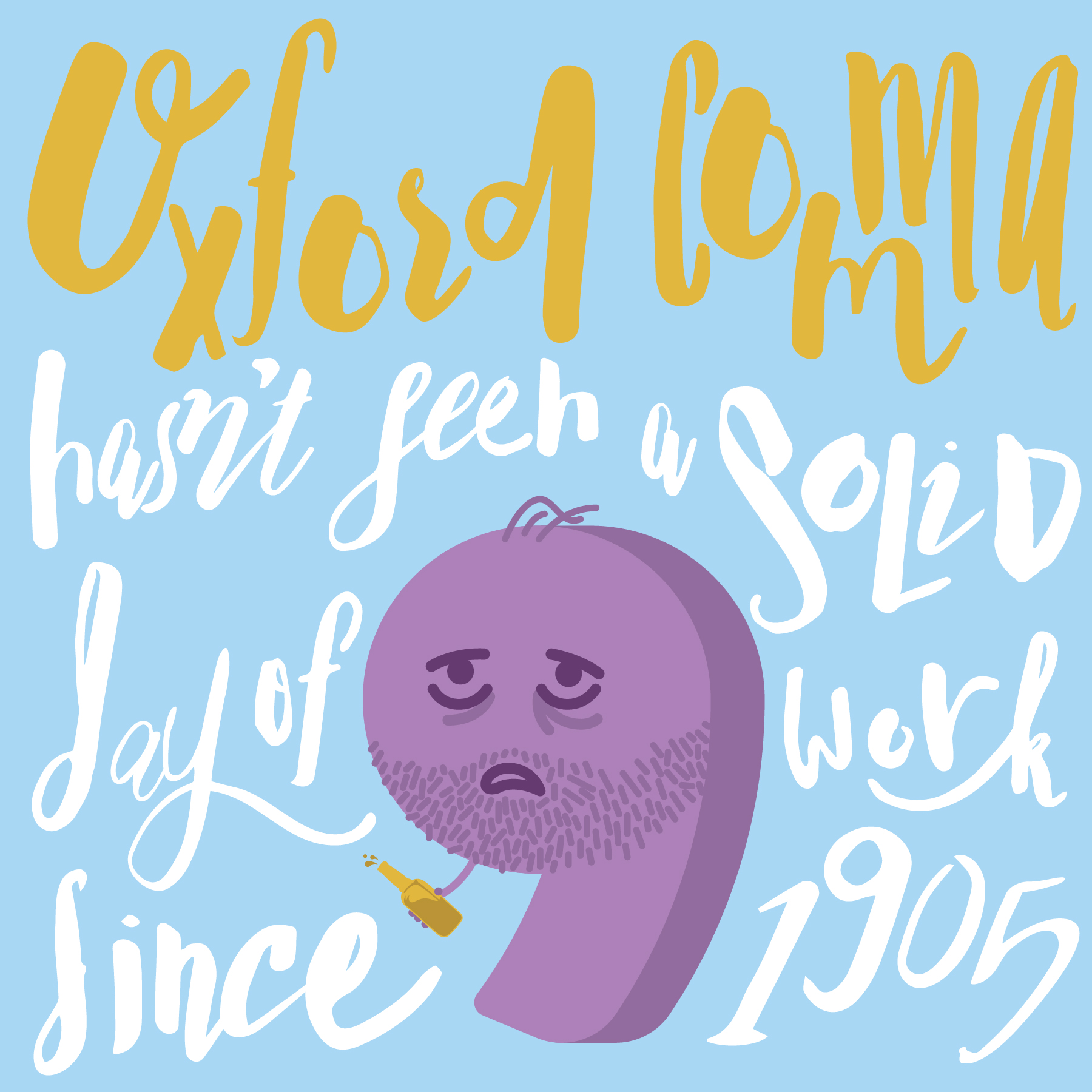*Not to be used for school reports. This is not a good resource for learning accurate information and is intended to be a misrepresentation of the English language. Please read responsibly.
There is an epidemic happening today, and it’s happening all around us. It’s something that must be brought to the public eye, so that’s exactly what I did. I put on my denim jacket, grabbed my tape recorder, and hit the literary streets. Here is the true story.

Oxford Comma, born in 1893, was billed as the beacon of hope in English literature. Strong, safe, and mandatory—the comma that could do no wrong. Then in 1905, a year before the comma’s adolescence, F.H. Collins published a book that changed the framework of sentence structure forever when he labeled the people’s punctuation-mark “optional.”
The aristocrat’s downfall was as swift as his rise. Today, you can find the elusive character aimlessly hanging around words, hiding in the shadows of lists, and avoiding any sense of responsibility. When I reached out to Oxford Comma, he had this to say:
“Man, I never really liked working,” he said. “I’m not cut out for this gig, ya know. Period and his brother, Ellipses, have to work all the time and that just ain’t me. I’ll tell you what, though, I do get a kick outta creating friction among the copywriting department.”
Poor guy, it was truly sad to see—no sense of ambition. He hasn’t held a full-time job in 111 years. He picks up small jobs here and there to get by—just enough to pay rent and cover his bar tab. If only this mischievous creature had an ounce of work ethic in his system, instead of rambling from sentence to sentence, stealing what he can to survive. He even tried to change his name, hoping to fool the halfwits. His alias, Serial Comma, didn’t last long.
A source close to Oxford Comma, who shall remain nameless, said “If a comma ever introduces himself to you as “Serial,” run, and don’t look back. He is a threat to your style guide and a ticking time-bomb in your copy.”
There were others who had more to say about Oxford.
“Yeah, I grew up with the guy. He was like a little brother to me,” Apostrophe explained. “But ever since he was deemed ‘optional,’ he just kind of took that a little too seriously. I mean, we all have those days where we don’t want to get outta bed, but he… man, he just changed.”
“He was made optional?” asked Question Mark. Apparently, he had no idea. Not a good source.
“O.C. and I used to party together back when we were in school,” said Colon. “When graduation came around, he was a no-show. Honestly, I’d be embarrassed if my kid, Semi-Colon, found out we were cronies.”
In fact, Oxford Comma has been giving Willow the runaround for years. Is he useful? Is he safe? Is he harmless? No one really knows. His punctuality is disparaging—he never shows up on time and when he does, he reeks of bad intentions and bourbon. A few months back, when he actually came into the office to work on a series of items, he provided lackluster effort.
I’ve got to be honest; tearing him down on the page makes me feel for the guy. To go through life without any goals or enthusiasm is just sad to see. Once I got to know him, though, I saw his importance. The guy has proven to be useful on certain occasions and can literally change the meaning of a sentence. He’s actually a pretty dope dude too.
If you’ve been experiencing the frustrating delinquencies of Oxford Comma, let us know. Our copywriting department can hook you up with creativity, copy, and advice on whether he’ll be an asset for you or not.
